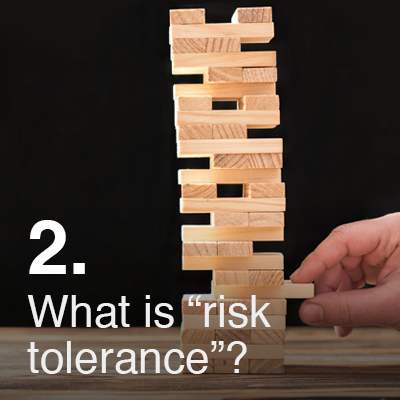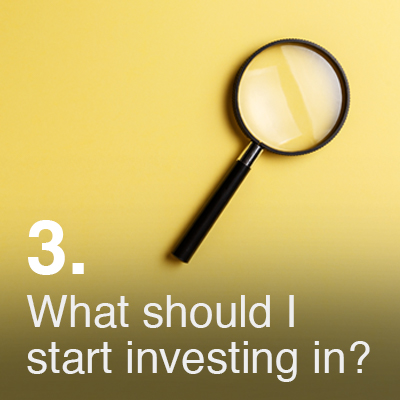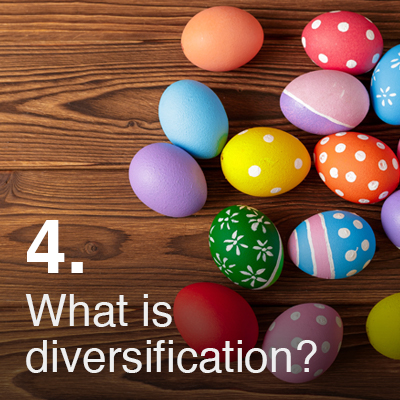
It’s not uncommon for people to think that having a savings account is enough to reach their financial goals. Although six in 10 people know that investment knowledge can help them reach their financial goals faster – whether those goals are around income, retirement, or paying off debt – most still don’t feel confident enough to invest or know how to start investing. As a result, basic financial products, such as savings accounts, still rank at the top in the recent Emerging Affluent Study 2018, conducted across 11 countries, with many respondents using simple savings accounts to meet their top three financial goals.
That’s understandable. For first-time investors, without the right information, investing hard-earned money may seem like an intimidating, risky and complicated process. To help you gain a better understanding of how to start investing in Singapore, here are some questions you can ask.

Not as much as you may think! There’s a widespread perception that investing is expensive, but getting started doesn’t need to be. You don’t have to dip into your emergency funds or sell off family heirlooms to scrape together a large sum of money to start investing in Singapore. For example, if you invest in unit trusts, you can do so with as little as S$1,000. Plus, for that cost, you even have the expertise of a professional manager to manage the funds for you.
In other words, it’s okay to start small. As you gain a better understanding of the investment landscape, you’ll gain confidence, and over time, you may decide to increase what you invest.

Do your hands sweat at the thought of losing money, or does just the word “risk” send excited tingles up and down your spine? Basically, in the world of investing, risk tolerance is how much risk you are willing to take in deciding what expected return you would like to make on your investment. In other words, how much money are you prepared to lose? Understanding your risk tolerance is key before you start investing in Singapore – or anywhere, for that matter. Investors fall into one of three levels of risk tolerance:
- conservative
- moderate
- aggressive
If your risk tolerance is conservative, you’re generally looking to minimise your risk and the amount of money you stand to lose. You’re more interested in protecting that capital and less concerned with appreciation. Conservative investors are generally content to settle for lower returns if it means they have more liquidity, stability, or both. Many novice investors have a conservative risk tolerance.
If you have a moderate risk tolerance, you’re looking for an investment portfolio that balances risk reduction and increased returns. You’re willing to take on a bit more risk if it means you may realise higher returns in the long run.
If you have an aggressive risk tolerance, you’re typically a pretty savvy investor. You have a solid understanding of the factors that impact not only the market but also the different types of assets, from stocks and bonds to currency and property. You recognise how volatile the market can be. You’re looking for the maximum return on your investment, and you’re willing to accept increased risk to achieve these returns.
Understanding where you fall among these risk tolerance categories helps determine your comfort zone and how to start investing your money. It doesn’t mean you always have to stay in that comfort zone, but it gives you a good benchmark.
To find out your risk tolerance, consider your financial goals, your investment experience, your timeline (as well as the time you have to devote to investing), and your personal temperament. There are also quizzes and questionnaires available online that can help you determine whether you are a conservative, moderate or aggressive investor. Expert financial advisers can also help you decide where to invest your money to match your risk appetite.

A wide range of products are available in the market, and the ideal mix of investment products will vary from person to person, depending on risk tolerance and financial objectives. To know what’s what, start by understanding the basic products, such as stocks, bonds, unit trusts, exchange-traded funds (ETFs), real estate investment trusts (REITs), endowment plans and crowdfunding initiatives.
Stocks are shares in the ownership of a business that issues the stock. They can be high-risk investments that are susceptible to volatility. They can potentially deliver a higher rate of return than bonds and other fixed-income tools.
Bonds are securities that represent loans to governments or companies that are looking to raise money to fund their operations. They’re generally safe investments with a low degree of risk, but they often deliver a lower rate of return than other investments, such as stocks.
Unit trusts, also known as mutual funds, are funds that pool money from other investors for further investment. When you start investing in Singapore, there’s an array of unit trust choices to suit different risk profiles, investment strategies and financial objectives. Keep in mind, though, that with unit trusts, extra fees and charges apply, such as an upfront sales charge for investing in the fund and a yearly management fee.
ETFs are funds that follow an underlying index. They’re ideal for beginning, conservative-risk-profile investors because they offer a diversified portfolio. However, if you have an actively managed ETF, you may incur higher fees.
REITs are funds that allow you to invest in properties, such as shopping malls and retail properties. They’re moderate- to aggressive-risk investments, and they generally have higher dividend yields than regular stocks.
Endowment plans are insurance savings plans that help you regularly save over a period of many years. Unlike regular stocks and bonds, endowment plans offer life coverage over a period of time. An endowment plan pays the sum assured on its maturity. They are popular financial tools to achieve long-term gain and for meeting the expenses of lifetime milestones, such as your children’s education, a wedding or retirement. Keep in mind, however, that if you withdraw from your endowment plan before its maturity date, you may incur penalties, so be sure you understand any charges for early withdrawal.
Crowdfunding initiatives are investments that solicit resources for investing in start-ups. They’re high-risk investments that can offer potential returns higher than those of traditional stocks and bonds.

How many times have you heard the expression, ‘Don’t put all your eggs in one basket’? This proverb proves especially true when it comes to investing. Imagine, for example, that you invest only in ride-hailing companies. If the drivers decide to go on strike indefinitely, the shares in that sector will suffer — and the value of your portfolio will drop significantly.
Diversification is an investment strategy that lowers the risk to your portfolio and helps you achieve more stable returns. There are several ways you can diversify:
- by investing your money in different asset classes, such as stocks, bonds and real estate.
- within these asset classes – for example, buying shares spanning a range of industries, such as technology, healthcare and finance
- by investing your money with various product issuers and fund managers
With diversification, you lower your risk because different asset classes fare better in the market at different times. So, even if the tech start-up you invest in is performing badly, for example, your healthcare stock may be thriving, so you won’t lose all your hard-earned cash. The lower risk of some investments helps balance out the higher risk of others.
If you are unsure about how to diversify when you start investing in Singapore, one easy way is to choose an already-diversified unit trust. And as you become a more knowledgeable investor, you’ll be better able to assess your investments and identify opportunities for diversification.

According to the Emerging Affluent Study 2018, the top three sources for receiving financial advice are friends/family, websites of financial institutions/banks, and financial planners/advisers. All of these options are valid, but when you’re still learning how to start investing and dealing with individuals and organisations, you want to make sure that they are trustworthy and have a strong track record.
Trust is essential to your financial decision-making; it’s your money, after all. You want to make sure your source of guidance is knowledgeable (and can clearly communicate that knowledge to you so you understand what’s happening with your money), listens carefully to your specific financial goals and needs, and provides advice that’s in line with these objectives and needs.
Start investing in Singapore today. It’s easy when you know how! Our team of advisers can help you. Make an appointment today.






